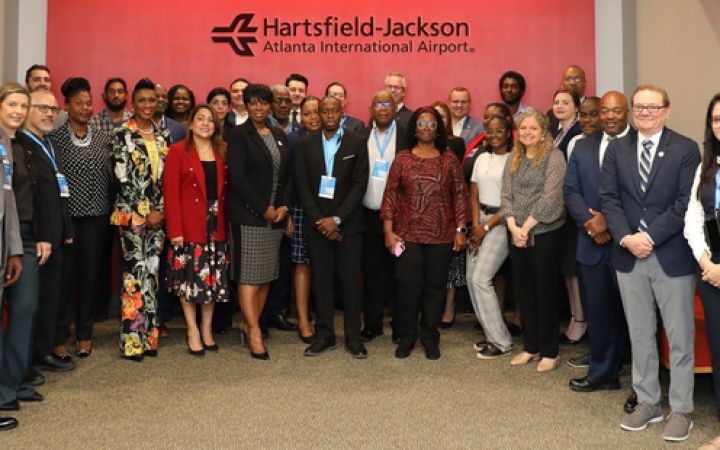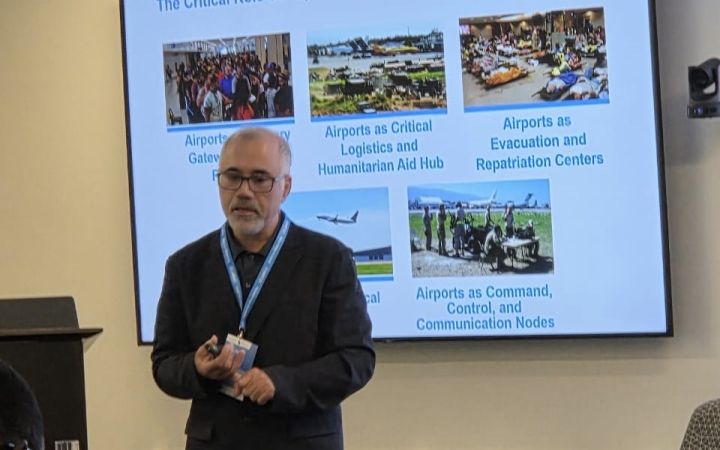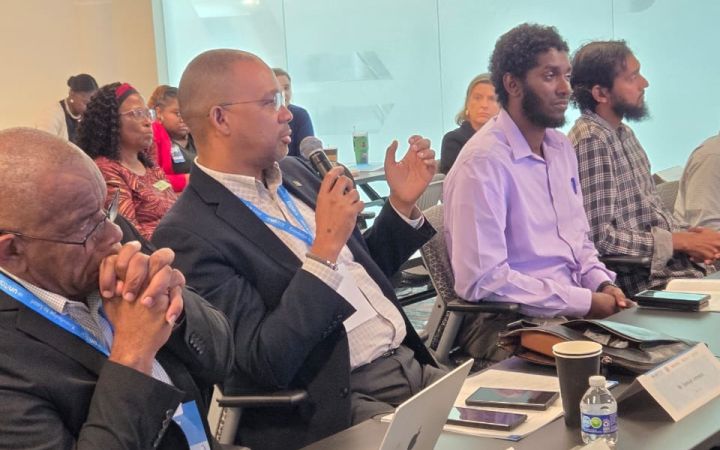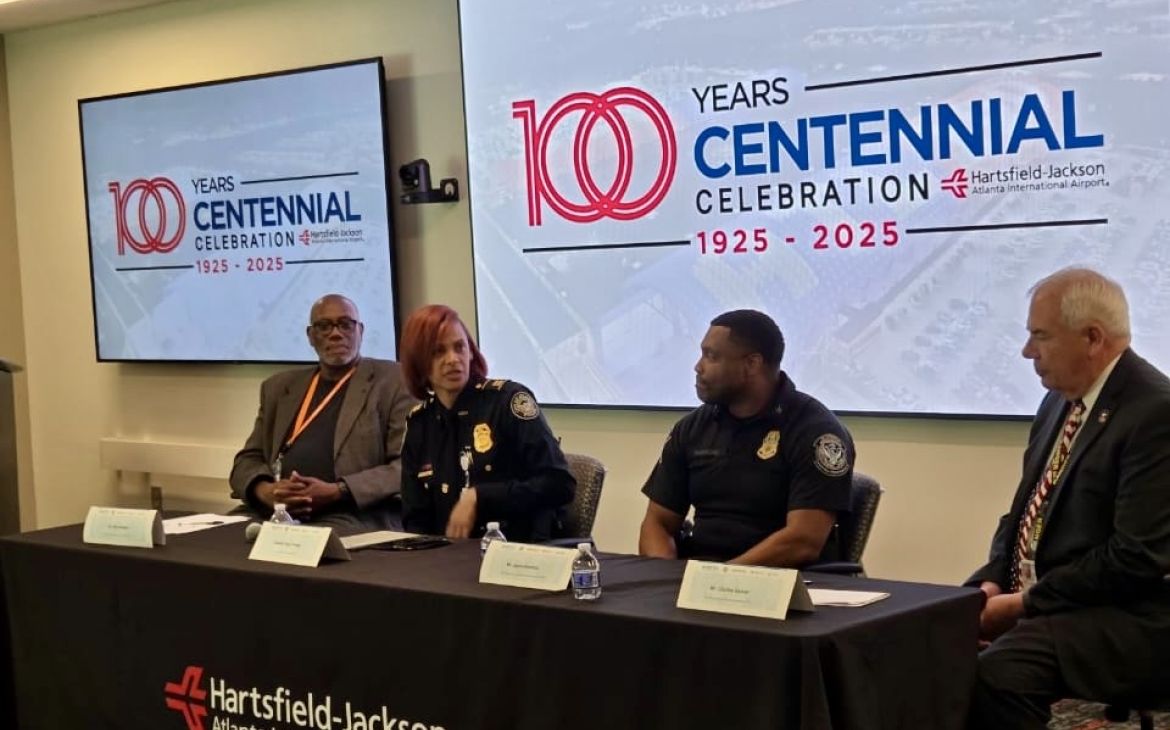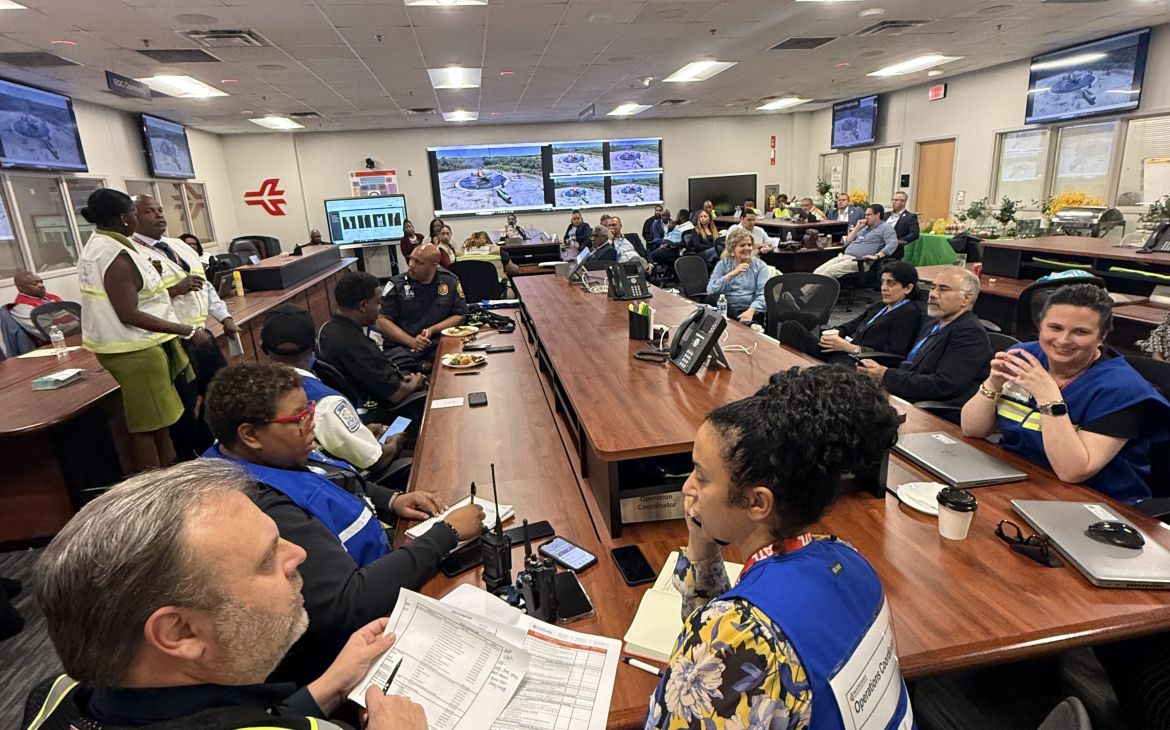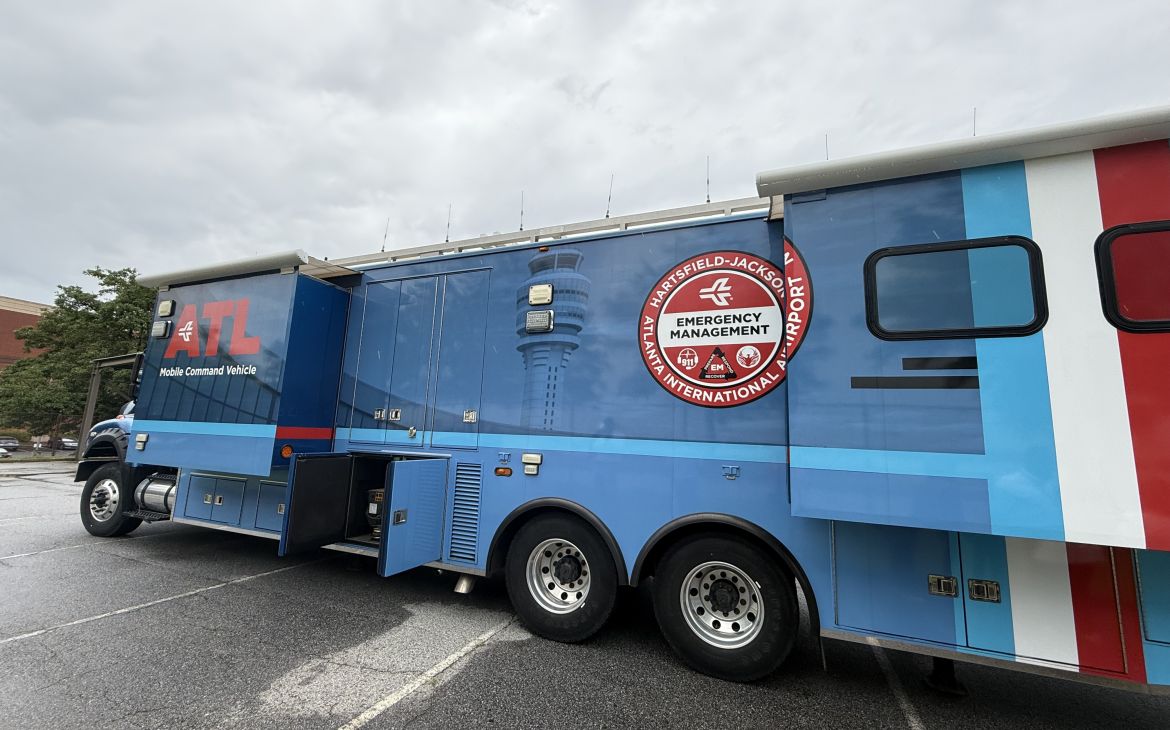3 June 2025, Atlanta, Georgia, USA – Senior airport officials and civil aviation authorities from 10 countries including Czech Republic, Dominica, Ecuador, El Salvador, Grenada, Jamaica, Liberia, St. Vincent and the Grenadines, Turks and Caicos Islands, and the US Virgin Islands took part in the “Future-Proofing Airport Development: Building Resilience Through Disaster Preparedness and Emergency Management” workshop held in Atlanta on 28-29 May 2025.
The intensive two-day workshop examined critical strategies for airport crisis response and operational continuity. In partnership with Hartsfield-Jackson Atlanta International Airport (ATL) and the Georgia Institute of Technology's Enterprise Innovation Institute, this event marks the second regional gathering under UNITAR's Airports and Economic Development Global Training Programme scheduled for 2025.
With 50 participants representing civil aviation authorities, airport executives, and emergency management professionals, the workshop tackled fundamental questions about maintaining airport operations during crises ranging from natural disasters to security incidents and public health emergencies.
The workshop addressed critical aspects of airport emergency preparedness, including:
- Development and implementation of comprehensive emergency plans for airports
- Multi-agency coordination and stakeholder cooperation during crises
- Crisis communication protocols and public information management
- Integration of advanced technologies and AI in emergency response
- Practical simulation exercises in ATL's state-of-the-art Emergency Operations Center
The workshop featured distinguished speakers and emergency management practitioners, including:
- Ms. Jan Lennon, Executive Deputy General Manager at ATL, emphasized the critical role of preparedness in maintaining operational continuity
- Mr. Augustus Hudson, Assistant General Manager for Emergency Management at ATL, who led multiple sessions on emergency planning and coordination
- Dr. Chris Crist, Senior Deputy General Manager and Chief Information Officer at ATL, who presented on leveraging AI and technology in emergency response
- Dr. William Smith, Director of Emergency Management, Georgia Institute of Technology, shared insights on crisis communication strategies
- Dr. Ali Asgary, Executive Director of ADERSIM Lab at York University and Director of CIFAL York, delivered keynote insights on disaster-impacting airports globally
- Dr. Maleknaz Nayebi, Associate Director of CIFAL York, addressed the use of social AI for airport crisis management
A notable panel discussion on "Stakeholder Coordination and Cooperation" brought together representatives from key U.S. agencies, including:
- Watch Commander Jason Hawkins, U.S. Customs and Border Protection (CBP)
- Mr. Charles Beaver, Transportation Security Administration (TSA)
- Captain Toya Young, City of Atlanta Police Department
- Dr. Clive Brown, The Centers for Disease Control and Prevention (CDC)
This multi-agency discussion revealed the critical need for coordination and communication protocols for a unified and effective emergency response, from security threats to public health crises.
A unique feature of the Atlanta workshop was the extensive practical component held at ATL's Emergency Operations Center (EOC). Participants engaged in:
- A comprehensive tour of the EOC facility, which serves as the central command point for managing incidents across the airport's 4,700-acre campus
- Interactive simulation exercises demonstrating real-time emergency response protocols
- Direct observation of integrated communication systems and crisis management technologies
Chief Roderick Smith from the City of Atlanta Fire Rescue Department joined the practical sessions, sharing firefighting and rescue perspectives essential to comprehensive airport emergency management.
By bringing together operational expertise from the world's busiest airport with cutting-edge research capabilities, we're creating actionable solutions for airports worldwide to enhance their emergency preparedness. – Mr. David Bridges, Vice-President of Georgia Institute of Technology's Enterprise Innovation Institute, highlighting the importance of academic-industry collaboration.
Whether confronting hurricanes in the Caribbean, earthquakes in Central America, or winter storms in North America, we all benefit from understanding how peer airports manage crisis situations. – Jan Lennon, Executive Deputy General Manager of ATL, stressed that knowledge sharing between airports facing different regional challenges strengthens the entire airport ecosystem.
Ms. Estrella Merlos, Senior Policy Specialist from UNITAR highlighted during the opening remarks
Disasters are a defining feature of the 21st century, and are having profound human consequences and economic impacts, with direct losses estimated at over $200 billion annually and over $2.3 trillion when cascading and ecosystem costs are taken into account. Building resilience is a fundamental pillar of sustainable development. This workshop aims to provide good practices in building resilient airports through planning, disaster preparedness and emergency response.
The closing ceremony featured presentations of certificates by Mrs. Juli Golemi, Director of EI2 Global at Georgia Institute of Technology and Ms. Alrene Barr, Executive Director of International Affairs at ATL, recognizing participants' commitment to advancing airport safety and emergency preparedness standards.
UNITAR’s Airport and Economic Development Global Training Programme aims to support an interconnected network of resilient airport hubs capable of supporting communities during their most critical moments. Through continued collaboration and knowledge exchange, participating airports will be better positioned to fulfil their essential roles as economic engines and emergency response assets for their regions.


